I am staring into the face of my newborn son and praying that I don’t screw this up. Again.
Looking back on the mistakes of my youth, I realize it would have been really nice to know what catastrophes awaited me before, in the blind ignorance of inexperience, I blithely conjured them into being. But since there will never be such a thing as a time machine, the wrongs of the past can’t be corrected — otherwise an army of spandex-suited travelers from the future would have appeared in 2003 to keep us from watching the Matrix sequels. Instead of an intervention, we get regrets.
Ever since I turned 50 — five years ago! — I’ve been ruminating on everything I wish I had understood as a younger man. The good news is that over time I’ve become more forgiving of that man. I didn’t know! I didn’t know that relationships weren’t supposed to work that way. I didn’t know that what I thought of as strength and resolve presented as cruelty and anger. I didn’t know it was more important to think about what you might leave with a person than what you might take from them. But of course, if I hadn’t made those mistakes, I wouldn’t have gone through the crucibles that forged me, however painfully, into what I am now. It’s not the years that signify wisdom, it’s the scars.
In any case, I was convinced that I was beyond the stage in my life when such life lessons would be of value to me personally. As a middle-aged man with an established career and grown children, I had already made the major choices of my life, correctly or not. Then, earlier this year, my wife and I found out she was pregnant. I had already been applying the lessons I had learned from my failed first marriage to my final one (the numbering stops now), but suddenly I had even more to lose by getting it wrong … again. And what if I hadn’t made all the mistakes requisite to know what I should do this time? I needed more wisdom, from more people, different people.
So, last fall, I put out a call to friends and acquaintances: Who do you know in Chicago who is over 65 and might have some hard-earned wisdom to share? I deliberately sought out people who were outside my social circle and represented a wide range of life experiences.
In the end, I spoke to 10 people from across the city, most of them Chicagoans by birth, some by choice. Due to the pandemic, none of our interviews were in person, so I won’t be offering descriptions of their wise eyes or lined faces. In addition to the relative anonymity of the telephone, I also told them I wouldn’t use their real names. (Some later gave permission to do so; pseudonyms are indicated with an asterisk.) Perhaps this led to deeper and more honest conversations, ones in which my elders shared with me not just their life lessons but also the losses and joys they experienced in the course of learning them.
Chris,* 74, retired police sergeant
“Society has to take care of its children.”
If hard experience translates into wisdom, then I expected Chris to be a goddamn King Solomon. Everybody I spoke to carried an inheritance from their parents, either as a wound or a gift. Chris had both — a loving father, an abusive mom — but the gift ended up being just another wound when his father was shot to death in a robbery in Edgewater by a young gang member. Chris was in Europe in the army at the time and wasn’t told what had happened to his father, just that he was dead at 65. “I didn’t know he was murdered until I read the front page of the Sun-Times when I landed at O’Hare Field,” he told me.
Being a young man, he immediately swore vengeance, although the cops caught the killer before Chris could find him. So Chris committed a petty crime just so he could be put in lockup with the perp. He would have managed it, too, had the desk officer not recognized him and thrown him out.
Then Chris became a cop himself and stayed one for 38 years.
I had assumed that he was one of those old-school Chicago cops who were born to the job via a father or uncle, but that turned out to be untrue. (His father sold fruits and vegetables.) If anything, Chris didn’t much care for cops, given the trouble he occasionally got into with them while out with his friends. He had already started a career as a school athletics coach when he entered the army. (In a bizarre irony, he had coached his father’s killer in grade school.) But his desire to avenge his dad, or at least to make something good out of something terrible, won out. What’s odd is that Chris didn’t become an avenging angel, returning the pain he had been dealt, like some kind of Rogers Park Batman. He spent as much time trying to save kids from the street as he did trying to put them in prison.
In fact, most of Chris’s stories were about his relationship with kids like the one he’d once been, like the one who shot his dad. You’d think — I thought — that such a man would carry rage with him along with his service weapon, but that’s not what Chris did. He intervened, sometimes physically, to prevent violence, leaping between fighting gangs, and on at least one occasion, instead of trying to get a kid locked up, he found him housing, got him schooling, got him a new chance, until the onetime juvenile delinquent became — over Chris’s objections — a Chicago police officer himself. “He was too smart,” Chris said. “He had a future as an accountant.”
“When I was working in the projects,” Chris told me, “I saw how those kids were treated, how unsafe it was. I would sit at the Robert Taylor Homes, off duty. I’d be there in my Izod shirt and khaki pants, just sitting in the park. My supervisor would come by and say, ‘What the fuck are you doing?’ And I would say, ‘They’re not going to come out shooting if I’m sitting here.’ I would talk to the mothers and kids and stuff like that. It’s just — I know what it was like to be fucked over when you were a kid.”
This surprised me. He himself had suffered terrible abuse at the hands of his mother, and his father died at the hands of a criminal. How could he refuse to pass judgment on those following that path? “There’s influences from the community, from who these kids grow up with, who they see as leaders. They see the guys who’re flashing the bankrolls and the guns, and they think, I’ve got no chance, so I might as well go into this business.
“A kid needs three things: a home, three square meals a day, and an education. If we miss any one of those three things, that kid is going the wrong way. Society has to take care of its children. That’s it.”
Chris himself never had children. He said he was afraid of passing on the abuse he received from his mother. Now he’s retired. Somewhat to my surprise, he’s not taking much pride or comfort in all the good he did on the streets over three decades. “There are some days when I really get down. Every day is not an upper. But golf is a huge outlet. I’m out, I’m hitting the golf ball, I’m with my friends. And before this COVID thing, we had a club, we’d play cards once in a while, we’d go have pizza. So if something’s bad, I could always say to my buddies, ‘Let’s go do something.’ ”
Randolph Stone, 73, retired law professor
“We all have frailties, we all fall down.”
Like Chris, Randolph Stone believes in the possibility of salvation. Even for cops. Stone recently retired as a professor of law at the University of Chicago, where he codirected the Criminal and Juvenile Justice Clinic, providing legal representation to juvenile defendants. That post came after a long career of advocating for civil rights and police reform, including a stint as the public defender of Cook County.
He told me, “We are all children of God, whatever you think God may be. To that extent, we all make mistakes, we all have frailties, we all fall down. Some of us are able to get back up quickly. Some of us don’t. But we are all still human. We can all be saved. To me, there are no worthless people, there are no bad people. There are people who have bad things that have happened to them, that haven’t been addressed, and they wind up taking it out on others. I know that sounds very schmaltzy or liberal. But that’s what I’ve seen.”
Randolph grew up in Milwaukee and, like many African Americans in that segregated city, had bad experiences with the police. An uncle was so badly beaten by a couple of cops that he never was right again. Then Randolph was drafted and sent to Vietnam, where he served in the army as a helicopter door gunner. “I was a great soldier for six months, and then I was a pretty good soldier for half of my time in service, and then when Martin Luther King was killed, I lost interest in being in the army.”
He came back from Vietnam and had a sadly typical lost year, mired in drugs and despair, before using his veteran’s benefits to get back to school. He credits all of his life’s experiences up to that point for his resurrection: “I learned from my parents the values of hard work. Kindness. Empathy. Values I picked up on early. Perseverance and self-reliance. And what I learned from Vietnam: No matter how bad things get, they could get worse. And you are a survivor. You will survive.”
Randolph married and had children, but his marriage didn’t last. Like a lot of successful people, he thinks now about what his success might have cost him, back when his kids were young. He said, “I was ambitious, so my focus was on achieving professionally. I was in private practice for a while during that period, so it was all about keeping the office open, paying the secretary, paying the bills, and I didn’t realize how important it was to put the same energy into the home life. I kind of thought that was her responsibility. You have to put the same energy into your family, your wife, your children that you put into your profession. Maybe more. I didn’t know that then. It just didn’t occur to me. Nobody told me that. I wish someone had told me that.”
Well, yeah.
I asked him a hypothetical question. What if a genie had appeared to him back when he was building his practice and his career and offered him a trade: He could have a loving and long-lasting marriage, wonderful relations with his children, domestic bliss radiating to every corner — but he would have to give up all his future professional accomplishments and retire as an unknown. Would he have taken the deal?
He paused a while before answering. “You look back, and you think: Is there something more important than being a better father? I don’t know. I think not. Now, looking back, I’m saying that. I don’t know if I would have had the maturity to take that deal then. At that time, maybe I would have said, ‘No, give me the glory of being a successful professional.’ ”
Then he summed up the case: “But knowing what I know now, I would have taken your deal.”
Mary,* 68, community activist
“Don’t forget to enjoy life.”
Mary was born in Mississippi and came to Chicago as a child, one of the stragglers in the Great Migration. She married at 19. “He was a DJ at a party. My mother did not like him. She was like, ‘What is a DJ? That’s not a job.’ She ended up being right about him. But out of that I was blessed to have one child.”
And she raised that child right, eventually helping him get into a private school on a scholarship, and then on to a university. I asked about her philosophy of child-rearing, and she said, “God has given you the choice of molding a life. I’m one that firmly believes that until a child turns 18, a parent is responsible for his actions, and if you cannot control his actions, you need to seek help. And that’s why a parent shows a child how to respect by respecting that child. Now he knows what it looks like, so he knows what to do. And when he doesn’t do it, that’s when he’s chastised. When you get a new puppy, you got to train it not to chew on your shoes. He don’t know! He chews. Tastes good. He’s chewing. A child is the same way. ‘You don’t do that.’ It’s just that simple.”
Mary worked as a liaison between people who need government services and the people who provide them, and so she met all types. “I’m not gonna condemn you for who you are. If you’re a criminal, you’re a criminal. If you’re alcoholic, you’re alcoholic. Drug addict, drug addict. I believe in a person living their life the way they want to. But if your aura is disruptive, you know — it’s like you go to a store with your buddy. He over there stealing candy while you at the front buying your chips and pop. And when they catch him, what’s the security officer gonna do? He gonna roll on you, too. Now, you may not have taken anything, but that’s the person you walked in the store with.”
Mary also said, “My stepfather told me once, ‘Nobody knows what you think, they only know what you tell them. And it’s your choice if you wanna tell them what you think.’ ”
And finally, she offered me this: “A lady told me once, ‘You know, baby, I never seen no Brink’s truck following no hearse.’ ” Mary laughed. “So you value all these things while you’re here, but don’t forget to enjoy life. That’s free.”
Veronica,* 77, mother and grandmother
“I felt guilty about everything.”
Veronica, like me, got a do-over as a parent, but one she would have refused had she been given the choice. After the premature death of her daughter, Veronica and her second husband raised the daughter’s two young sons themselves. She’d retired from teaching decades earlier to raise a family, as was expected in the 1960s, and in her own telling, it did not go entirely well, especially after her first husband died and she went on to marry a man with children of his own.
Looking back on her first go-round as a parent — how she tried, and sometimes failed, to manage a blended family of children and stepchildren — she said, “I felt guilty about everything. I don’t feel that nearly as much now. Recently, I had a kind of epiphany: Oh, look at this, I raised these two grandchildren. People say, ‘You did a great job,’ and I used to say, ‘No, that just happened.’ But I’ve decided: We must have had something to do with it. And that has helped me feel less guilty.”
Given that Veronica had been given a second chance at parenting, I felt compelled to ask her: What’s the secret to raising kids?
“You really need to think about what’s important, and what’s not important,” she said. “The things that I might have screamed about before, they’re just not a big deal. I’ve also had cancer twice. And as a result of those experiences — the deaths, the illnesses — it turns out that the little things are just little things.”
Larry Green, 68, retired music executive
“I had to tell her I forgave her.”
Larry Green was one of the four African Americans who desegregated the high school in the small Georgia town where he grew up. He actually looks back on the experience with pleasant nostalgia, exhibiting a kind of equanimity you wouldn’t expect from a man born on the wrong side of American’s racial divide, an attitude for which he credits his parents. “Their lesson was that there are good people and bad people, and if you choose to associate yourself with bad people, that’s your call. If you choose to associate yourself with good people, that’s also your option. But at least you can understand where people are, and you meet them there.”
He threw himself into high school activities — student government, yearbook, athletics — and made a point of getting to know people. “I just kind of got known as a likable kid, a likable guy,” he said. “That was a transformational point in my life, helped me navigate a white-dominated professional world.”
Which, in his case, was the music business. After getting into student radio at Northwestern, he worked for 10 years as a record label representative, promoting music to local stations, first in Charlotte, then Denver, then Los Angeles, where he did an unhappy stint as an executive before returning to Chicago in 1980.
He told me that, given his ethnically neutral name and the timbre of his voice, some of his contacts in the music business didn’t even know he was Black until they met him in person, and they sometimes reacted with shock. “I had been talking to one radio guy in Raleigh on the phone for two or three months before we met, and when I went to his office, he came out and stared at me. ‘You don’t sound Black,’ he said. ‘How am I supposed to sound?’ I said. I wasn’t insulted. A former boss of mine said that I had a very unique skill in working in a white world. Yes, there is going to be some resistance. But you have to go forward and do the best that you can. And hopefully your skill set will override any resistance.”
Still, he’s repeatedly had the experience of getting along fine with a white person in one context — at the gym, say, or in a business meeting — only to get the brushoff in a social situation. “There was a gentleman that I knew; I had been to his house for Thanksgiving. I’m having a cocktail at the old Palm restaurant — this is back in 1987, ’88 — and I see this guy with some other people and I just go over and say hello. And he acted like he didn’t know who I was. It’s not something I’m angry about. It’s not my loss, it’s their loss.”
Larry had a harder time maintaining that calm equilibrium in his domestic life. The fault may have lain in his lifelong refusal to see the worst in people. He married at 27, and as often happens, both parties realized they hadn’t known what they were getting into and parted on good terms. But his second marriage fell apart after a call from the police saying his wife had been arrested for embezzlement.
His wife’s deceptions rocked him completely, as did the sudden death of his father shortly thereafter. His anger and sense of betrayal were all-consuming, so much so that it took a decade for him to even date again. “I was spending way too much time being mad,” he said. “The first step of healing, the only way I could ever start healing, was that I had to tell her I forgave her. The day that I did that, I started to feel better.”
He eventually remarried, and today is quite happy. (Anecdotally, it does seem the third time’s the charm.) “I knew it was going to work when she said, ‘I want to grow old with you,’ ” he told me. “None of the other two ever said that.”
Shirley Anne Massey, 78, wife, mother, grandmother
“You should not let people steal your joy.”
I will confess to being a fan of Shirley Massey. She was born in 1942 in the old St. Luke’s Hospital on the South Side, to a Black father and a biracial mother who identified as white. “The hospital had two different entrances, one for white, one for Black, and my father was not allowed to come into her ward and see her. And then my mother found out the doctor had written ‘Black’ on my birth certificate. My mother cursed him out. And the things she said to the nuns!” Shirley’s mother never knew who her own father was, but assumed he must have been white, as she had been able to pass as white her whole life — and was furious that her own daughter would be denied that option.
Shirley grew up on the South Side and attended Chicago Teachers College but got pregnant in her first year there. She had a remarkably modern attitude toward this circumstance: “I eventually told my parents, and they were going to try and get me an abortion, and I said, ‘No, I’m not doing that, and I’m not getting married.’ Because I didn’t want to marry him. But they’re all upset. Everybody’s upset. So I said, ‘OK, I’ll do it. But that’s it.’ So I got married. And then I got divorced! Like I planned.”
She spent the rest of the decade working various jobs, including managing customer accounts at Playboy. “This was 1962,” she said. “The woman that ran the computer was Black. There were gay men there. It was really very, very open.” But there were still problems.
“I was late once or twice. And the two bosses I had were both white, and women. And they wouldn’t give me my raise because they said I’d been late. But now some of the white people were late and that didn’t happen. So I was in the supervisor’s office and I knocked everything off of the immediate supervisor’s desk and yelled, ‘I’m Black and I’m proud!’ ” Shirley laughed at the memory. “I have a lot of my mother in me.”
She displayed the same, shall we say, unmoderated attitude at some of her other jobs, once shouting “Heil, Hitler!” at a supervisor who happened to be of German extraction and who she felt was not sufficiently respectful. “He didn’t bother me anymore after that.”
She eventually met and married the physicist Walter Massey, who has since served as the president of Morehouse College and of the School of the Art Institute of Chicago, among other prestigious posts in academia and science. She has spent much of her time managing her husband’s schedule — “I have a PhD in moving” — and raising their children.
I asked her if she had any regrets about the way she had spoken her mind in the past. “I have no regrets about any of it,” she replied. “You should speak up for yourself if you feel you are not being treated correctly or fairly. Period. Even if the consequences are that you get fired. You should not let people take advantage of you. You should not let people steal your joy. If you’re around people that bring you down, you should end that friendship.”
But, she added, “never give in to anger.”
Lois,* 69, mother and grandmother
“Don’t hold grudges.”
When I remarried in 2018, I said to a lot of people, including my bride, that she was lucky: I had already made every mistake there was to make in a marriage, so she’d be safe unless I was unusually creative in coming up with new ones. Which, again, led me to think about all the things I hadn’t known about marriage back when I first tried it. Even in this unfaithful age, marriage is supposed to be for life, so when you’re neck-deep in it, you keep telling yourself you just somehow need to learn how to swim better, until one day you drown.
All the people I talked to for this article had been married, most more than once, and I found myself wondering who knew more: the minority of them who succeeded on the first try, or the ones who had failed. Lois has a law degree and worked as an investment banker but asked to be identified as a “mother and grandmother.” She has a delightful relationship with her adult children, even though they were born of an unhappy marriage. “My husband was the spitting image of my dad,” she said. “Very work oriented, on the treadmill of success and money. My fights with him were about him coming home in the evening late, that sort of thing.”
Looking back, she thinks she was trying to replicate the only model of marriage she had, that of her parents, a Mad Men–style match of driven professional with dutiful housewife. Was her mother happy? She seemed that way, said Lois, but given the standards of the time, who’s to know? “She signed on for the deal. When we were all grown, she took a volunteer job at the Red Cross, and she would go every day. It was the first job she ever had — they were 22 when she got married. My father was still doing his thing, riding the train from our suburb to Chicago. He told her
he didn’t want her to do that job. We were all grown — it wasn’t like she was Mrs. Mom all day long. But he didn’t want her to do it, because she was supposed to be taking care of him. She sucked it up and quit, to the detriment of her own fulfillment.”
After 29 years of her own marriage, she found out something shocking about her husband — she wouldn’t tell me what — and finally demanded a divorce. She said the discovery was really just a long-overdue prod to take action: “We just were indifferent to each other. The sex life was completely gone. And the kids were gone, too. I haven’t regretted it for a second.
“When you’re ready to go, it’s time to go,” she said. “Don’t look back. But on the other side of that is: What do you go to? You’re lucky if you have enough friends you can count on one hand, the kind that you can call in the middle of the night, and mostly that you have family. That’s the most important. No estrangements in families. Yes, we don’t all get along all the time, but don’t be estranged from people you need. Don’t hold grudges. Forgive.”
Lois is doing great these days, marking more than 10 years with her current partner. “My boyfriend is 180 degrees different. He’s kind, a gentleman, he hasn’t made tons of money. He’s not my ex. And he’s not my father. I finally broke away from that mold. I’m happy to say my daughter didn’t marry her father either.”
Jill Wine-Banks, 77, retired lawyer
“Even the most horrible things serve a purpose.”
Jill Wine-Banks also looks back on her failed first marriage without regret. “Even the most horrible things serve a purpose,” she said. “If I had been happily married, I might not have put the time into my career in the way I did, as a way of avoiding going home at night. If you get lemons, make lemonade. So my lemon was a bad marriage. The lemonade was a good career.”
“Good career” is what we call an undersell. Jill became famous at the age of 30 when she served on the staff of Leon Jaworski, the Watergate special prosecutor, principally by cross-examining Nixon’s secretary, Rose Mary Woods, about the 18½-minute gap in the Watergate tapes. Then she went on to become the first female general counsel of the army, the first female executive director of the American Bar Association, and a corporate executive at Motorola and Maytag. If the quality of the lemonade is inversely proportional to that of the lemons, it must have been one terrible marriage.
“I learned that I had accepted the traditional role or definition of marriage when I was married the first time in the ’60s,” she said. “I felt that if there was a problem in the marriage, it was my fault, and I had to fix it. And it took me years of therapy to figure out that the problems were not mine, that I had a right to be happy.”
Her current marriage (I really wish there were a better way of expressing that, like “final marriage” or “actual marriage”) has lasted, with relatively few bumps, since 1980. Her advice for marital success is standard but sincerely felt: “You have to speak up for yourself. Not to yell and scream, but to say, ‘This is how you make me feel.’ It’s a constructive way to do criticism.”
As a pioneer in law and government, Jill ran into rampant sexism. “I wish I’d been warned. But if I had been warned, I might not have tried the things that I did. Instead of being naive, I would have expected that people would see me just as a woman.”
She rarely countered sexism with a head-on confrontation, as Shirley Massey might have. “Leon Jaworski kept introducing me as a ‘lady lawyer,’ and I’d say to him, ‘Leon, someone you’re introducing me to sees me. If you say I’m a lawyer, they will figure the rest out.’
“One time, when I was at Motorola, one of my first assignments was in Russia, and the translator said, ‘They think you’re mean.’ I was really distraught. So I call Christie Hefner” — her good friend, at the time the CEO of Playboy Enterprises — “and she said, ‘You want them to think you’re mean. You want them to respect you that way.’ ” That calmed Jill down.
Donald Sharp, 83, pastor
“You gotta do more than pray.”
Having preached to and counseled the Black community on the South Side for decades, Donald Sharp has spent considerably more time finding solutions to other people’s problems than thinking about his own. But he told me that his effectiveness as a pastor comes from his own failings. “You have to be able to show them you’re frail like them. That you have issues like them. That your children are imperfect, like their children. You’re talking to a man who’s got a grandson in jail, a grandson who’s got four children by four different women. So how do we stay the course? And when we get off course, how do we rechart our course?”
Donald has been married twice — his first wife died young — and his second marriage has had its ups and downs. “Marriage is a series of adjustments, and the first years of our marriage were difficult. We had different backgrounds. I’m a city boy, she’s a country girl. She grew up in Mississippi. The first few years, there were times when we may not have made it.”
They did make it, so I asked him what he’d learned and how he’d adapted. “I wish I could say something very simple: ‘Oh, this is how you make it work.’ I guess the point is that now we just kind of roll with the punches. Back early on, it was tit for tat, word for word, somebody has to come out as the victor. But you never win! You learn to be careful in the things you say, and you have to put a lock on your feelings. If you aren’t careful, you will get your feelings all messed up, and you get wounded and bruised and angry and lash out. I’ve learned to put my feelings away and move on.”
What’s most interesting in talking to Donald is how little he mentions God or divine help. “You got to deal with things as they are, and not throw a lot of churchy words into it: ‘Oh, God is going to make everything all right. Oh, baby, let’s just pray.’ No, you gotta do more than pray. It takes effort. When I look at some of these TV preachers, it turns me off. They want to give simple solutions to people they don’t even know. But no, you’re going to come out with scars and anger and pain. The scars are going to be there. I’m going to deal with reality. And then I’m going to look in another direction where I need to go.”
Rose,* 70s, nonprofit coordinator
“We were just the best of friends.”
Of all the people I spoke to, only one never admitted to moments of anger or regret. Rose, who was not interested in disclosing her exact age, has been working for the same nonprofit since 1978 and, by her own telling, has not tired of it, even when she has to take calls from unhappy or irate people. “All they want is to be heard, and that somebody will help them. I don’t have the right to show any anger. They’re the ones I have to be extra nice to. It’s to help them, calm them down, and let them know I’m here to help them.”
Rose, a widow, also happens to be the only person who described her marriage in uniformly happy terms. (Her husband of 41 years died in 2004.) “After dating him and getting to know him, and him getting to know me, we decided we were a good couple. It turned out that way. We just liked being in each other’s company. Now, you have things that you have to work out. Once I married him, in my eyes, he was the man, I was the woman. I stayed his wife and let him be the man. And that worked out very well.
“He did a lot for me. And when he retired, he would cook and do a lot of housework. Every day he would make dinner for me, and we would eat together, and talk about his day and my day. We were just the best of friends.”
They never had children, by choice, and again, with no regrets. “I had a lot of family and he had a large family, so there was no need to add to it.”
At a certain point in our conversation, I expressed mild disbelief: How could a person live long enough to deal with widowhood and the various vexations of old age and still seem so serene?
“Don’t get me wrong,” she said, “there are times I get sad. Thinking back over the years, there were times when I was unhappy, but I don’t really dwell on it. I break myself out of it.”
Rose’s observations, and those of the other people I interviewed, were fresh in my mind when my son arrived, several weeks early. I’m still processing the lessons from what they told me, but I have lived long enough to know this: I will, in fact, screw it up again. When that happens, though, I will be able to at least give myself the gift of forgiveness, which I have before only granted myself in retrospect.
I also know this: When I wrap my son in his swaddling blanket and tuck him into his crib, I will repeat to him, as a mantra, Rose’s words, which I hope he will one day offer to a child of his own, once he has made his own terrible, inevitable mistakes.
“Don’t waste any time,” she told me, “not being as happy as you can be.”



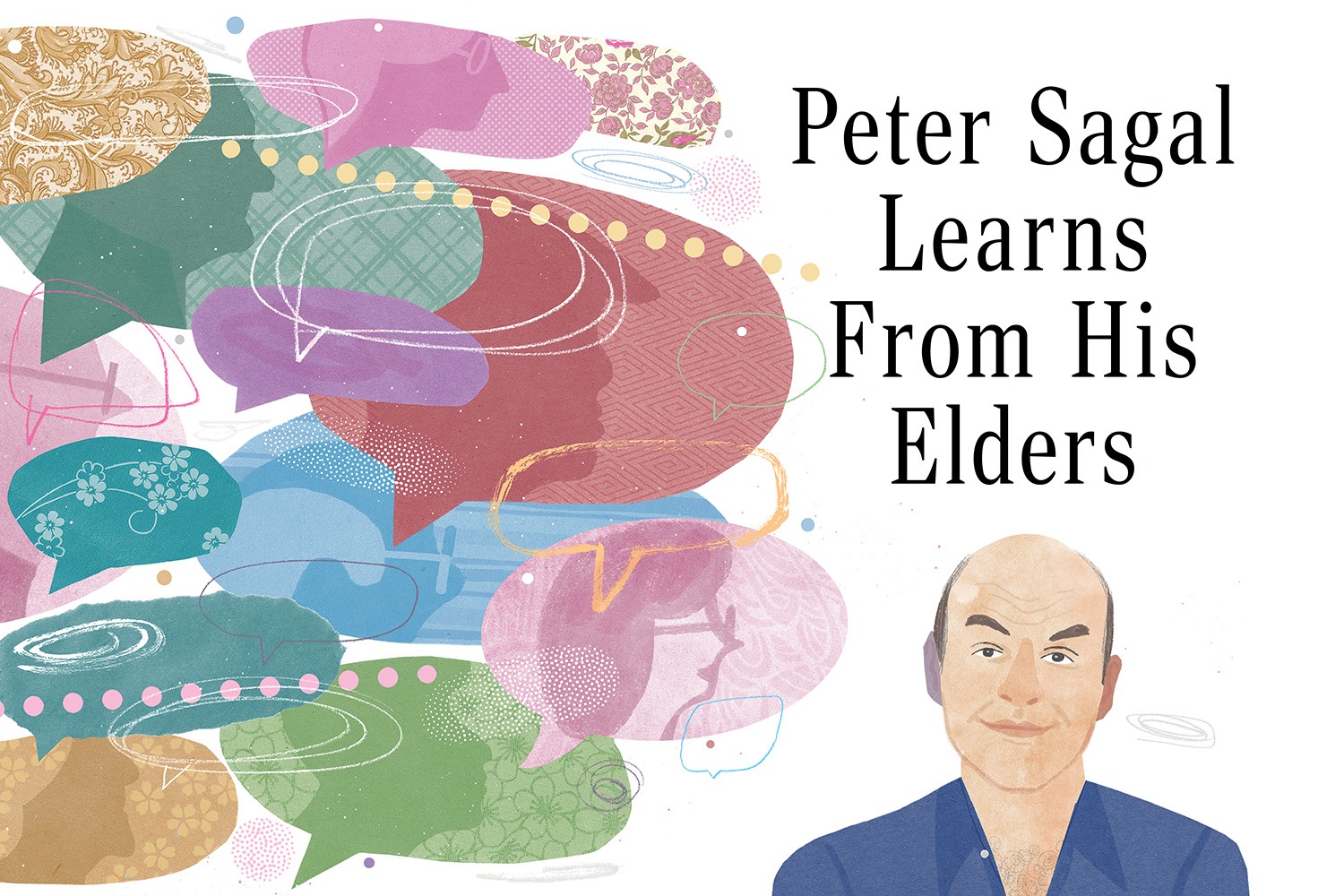
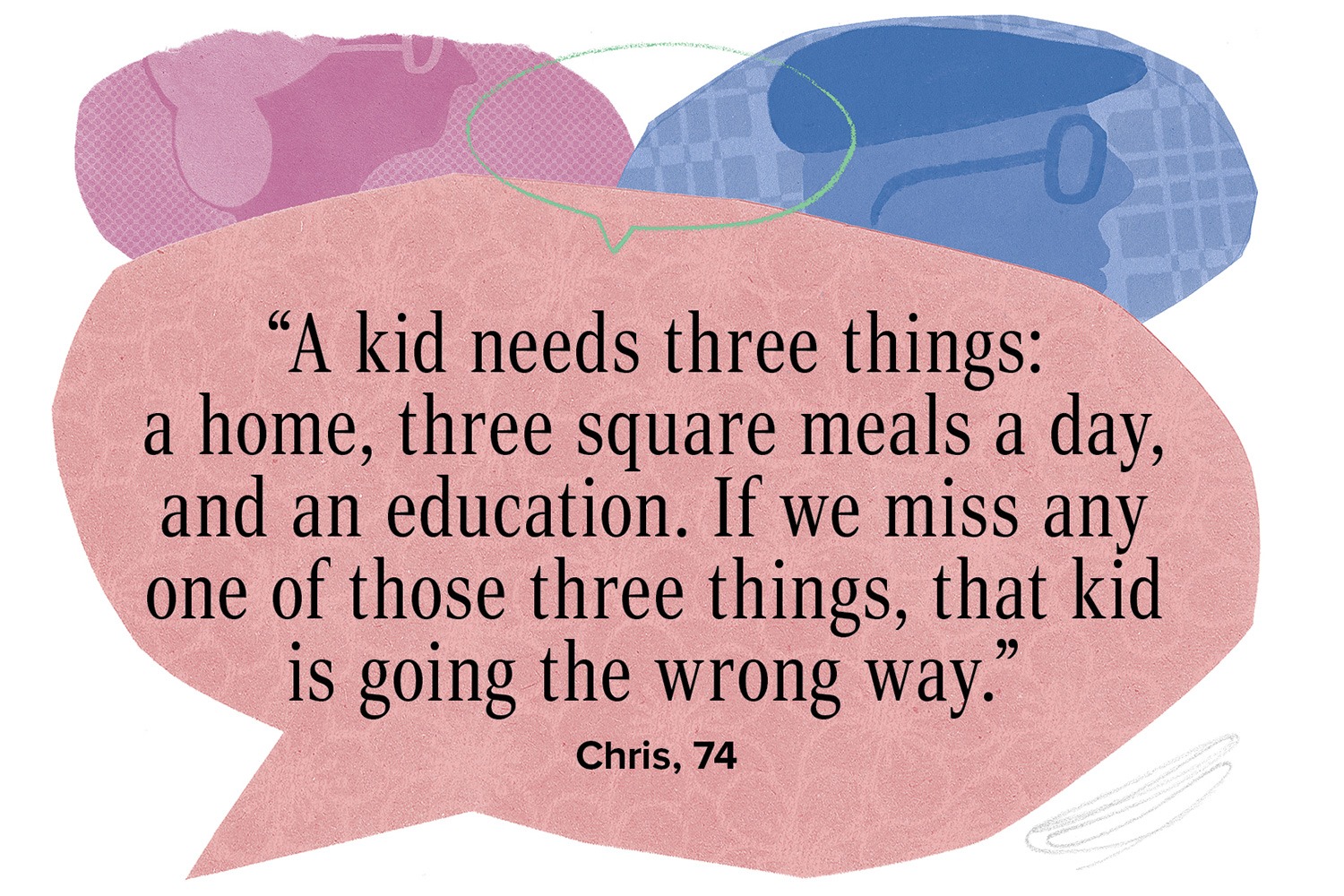
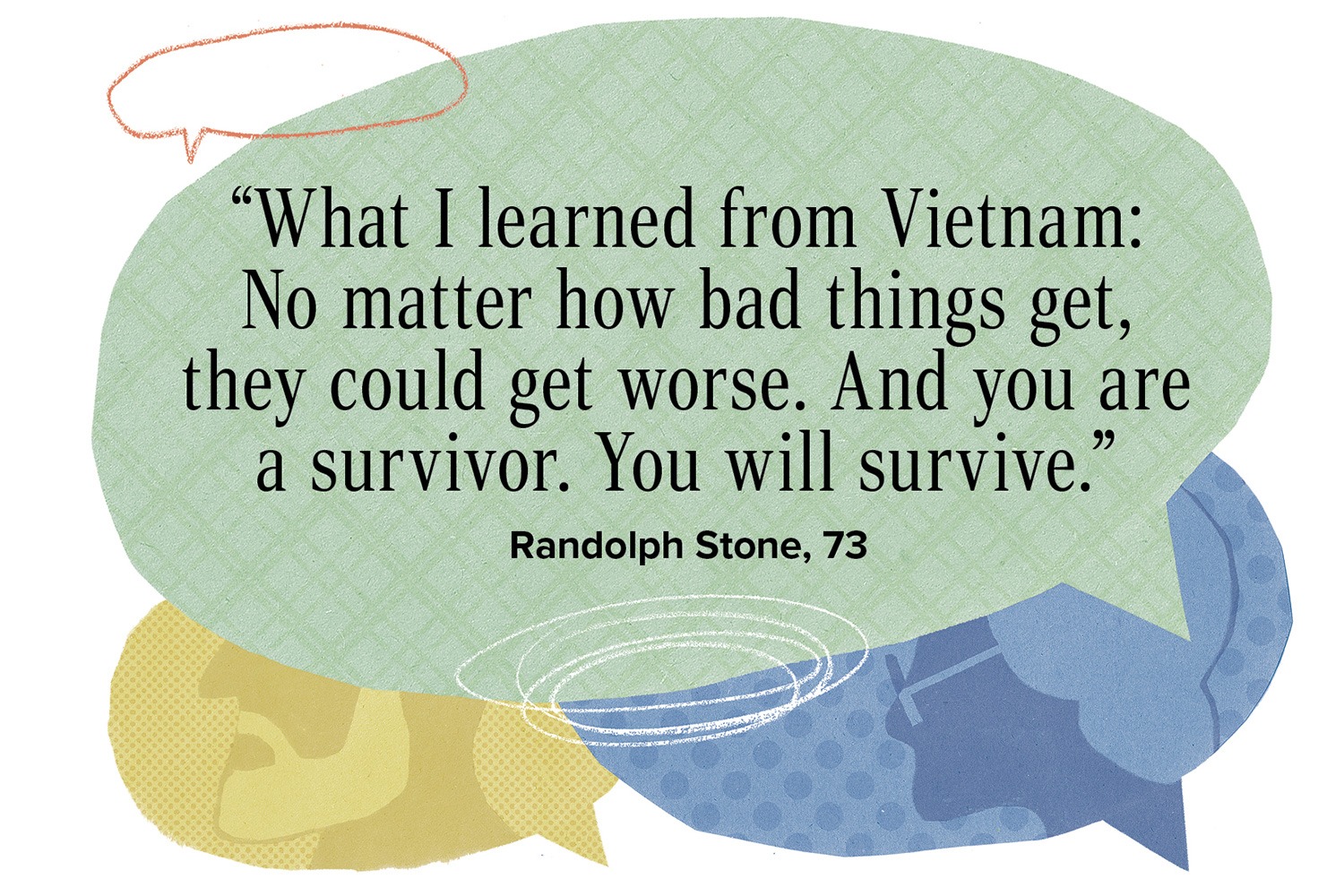
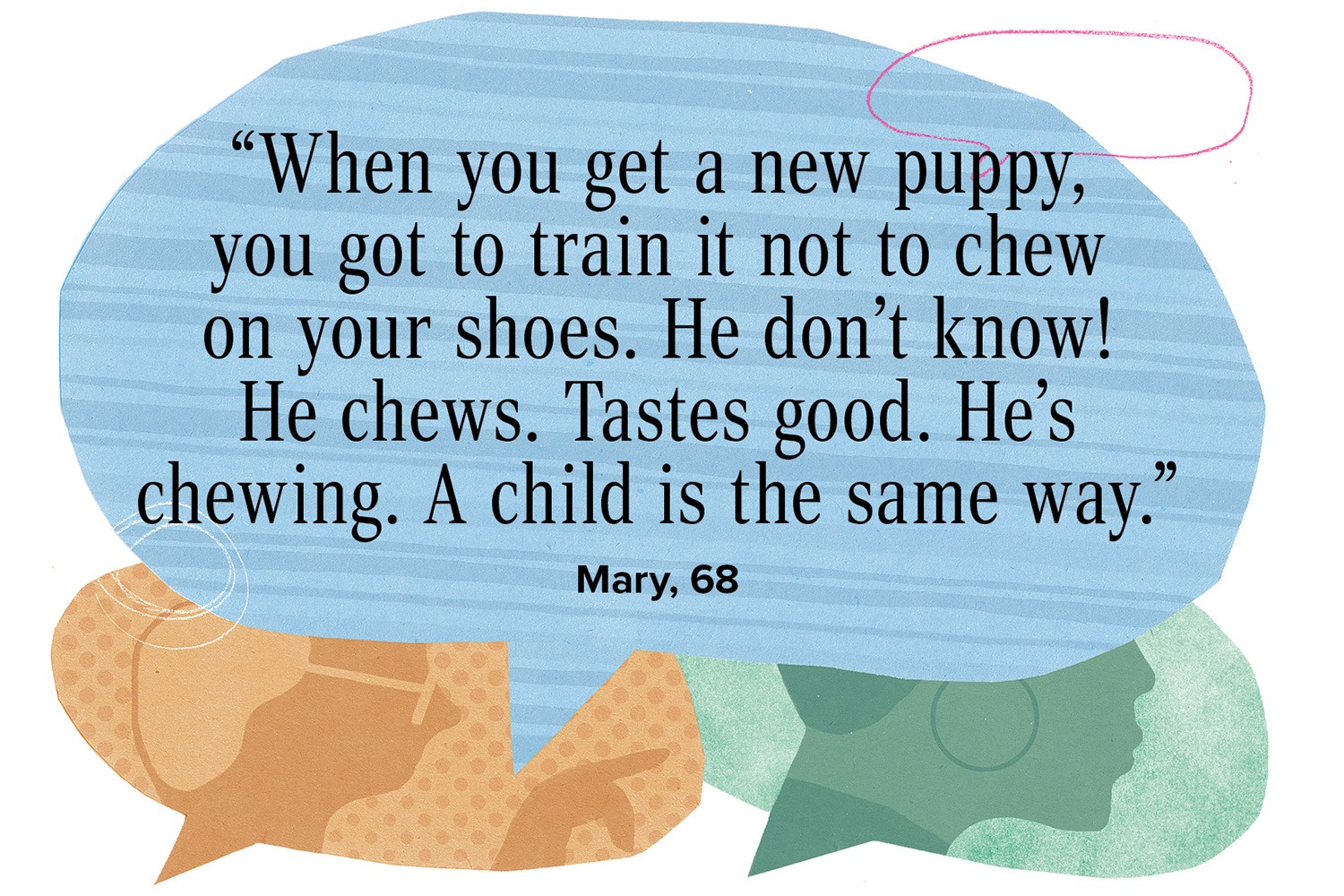
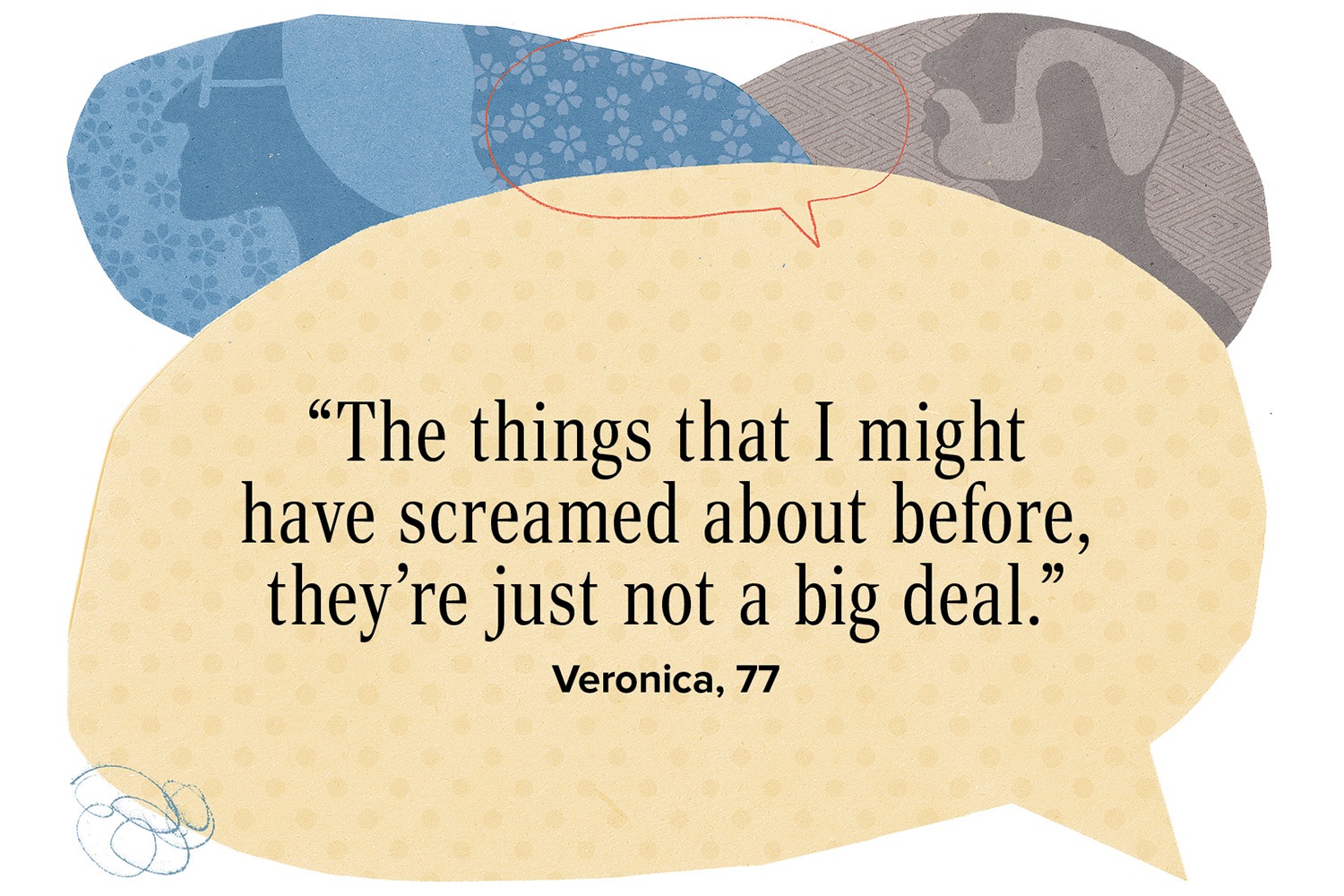
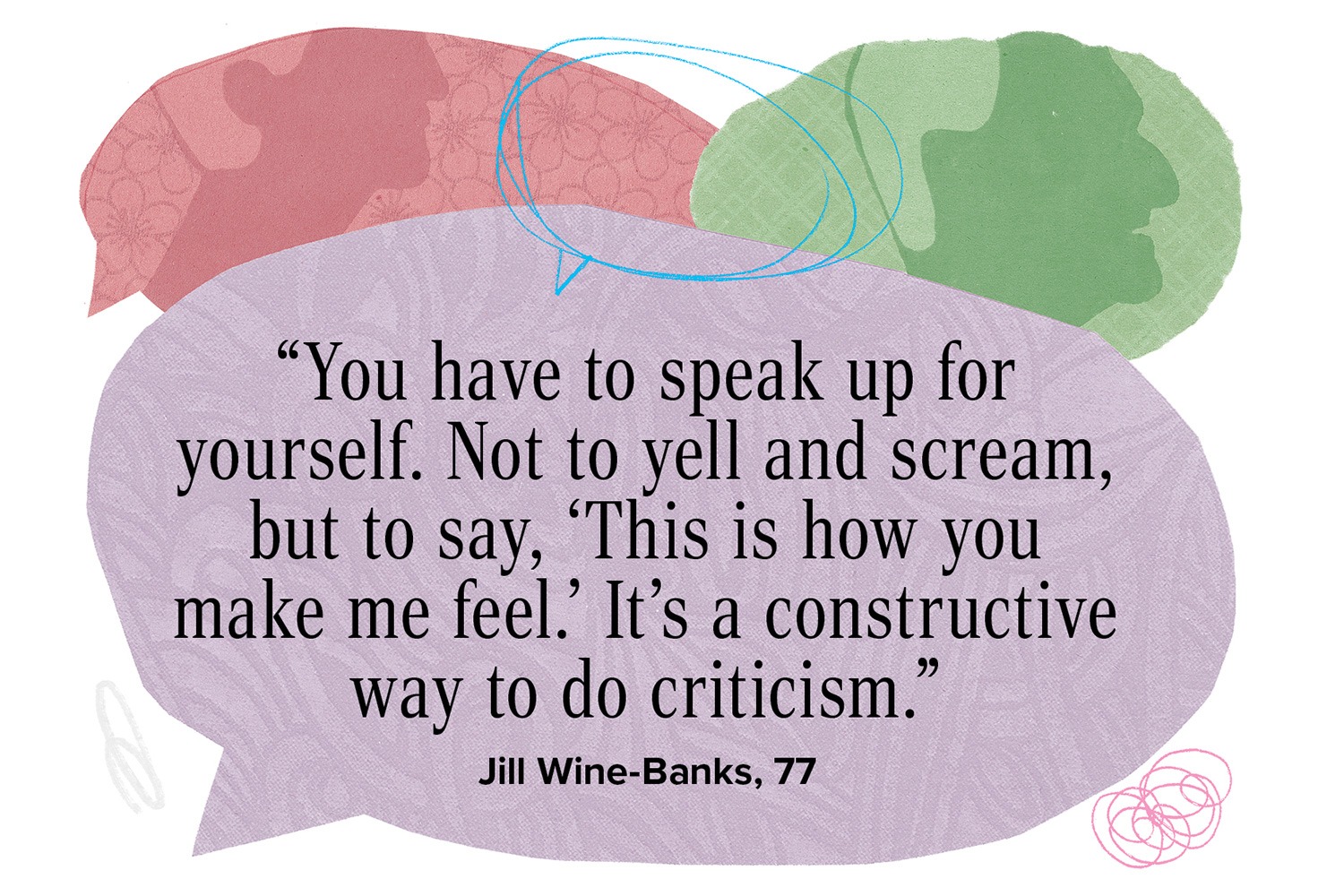
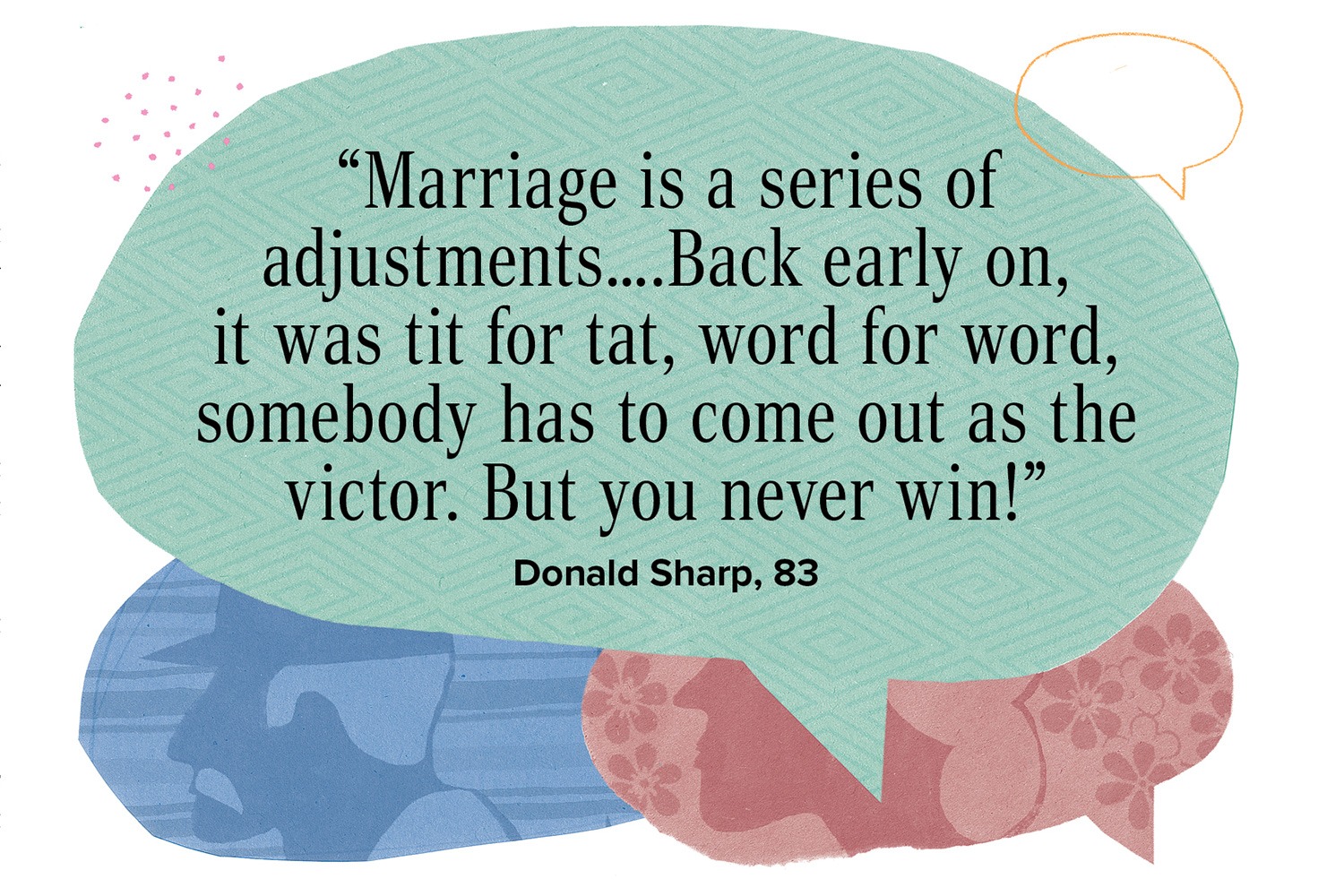
Comments are closed.